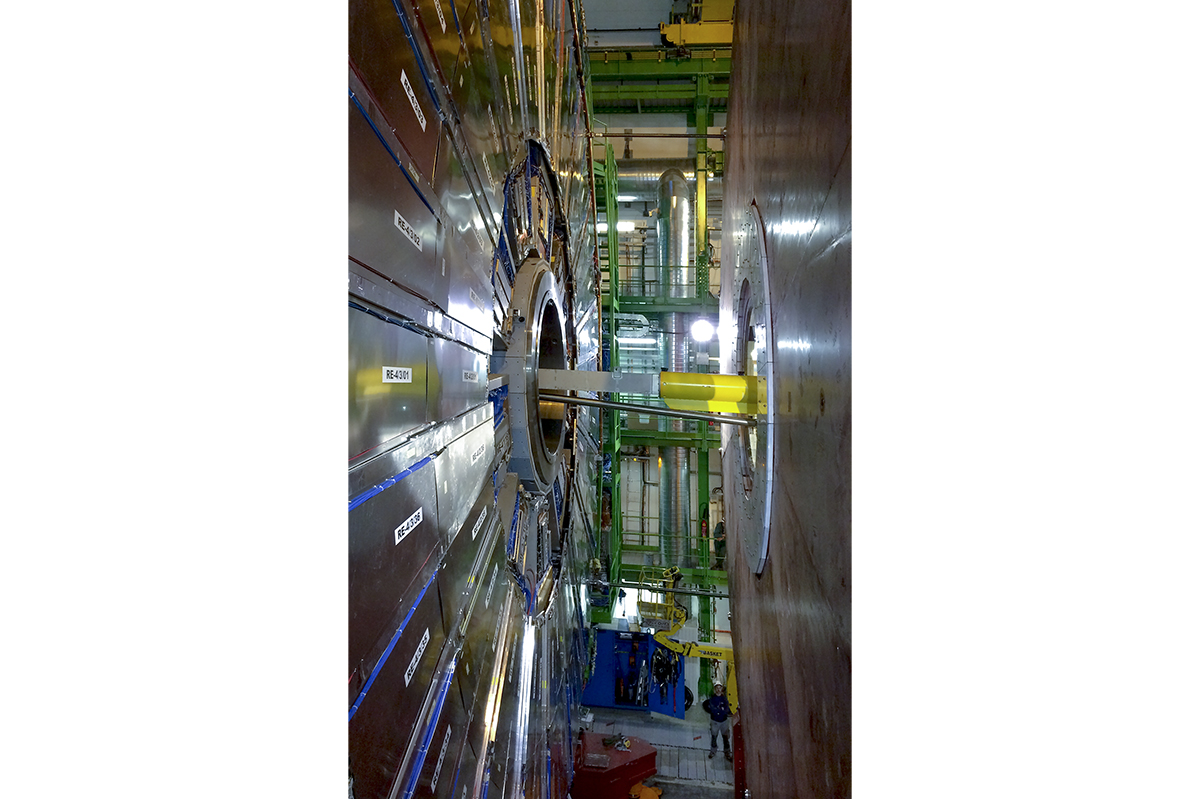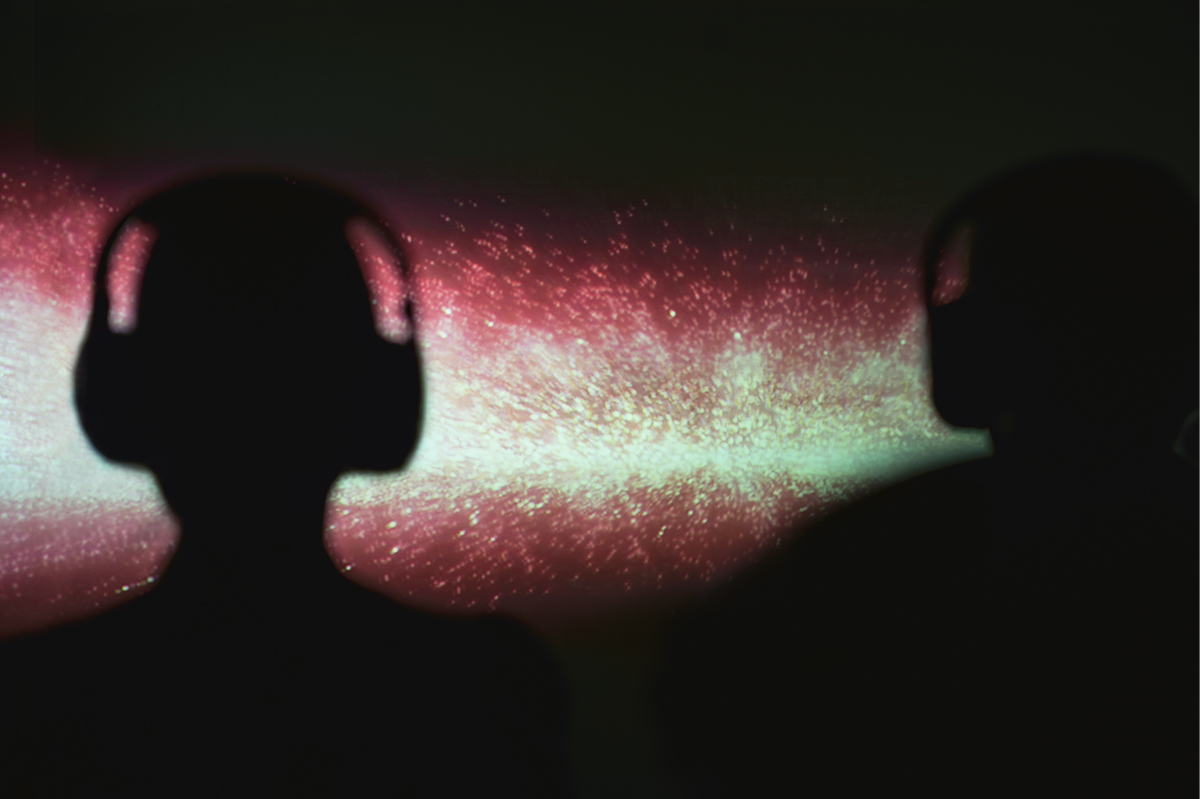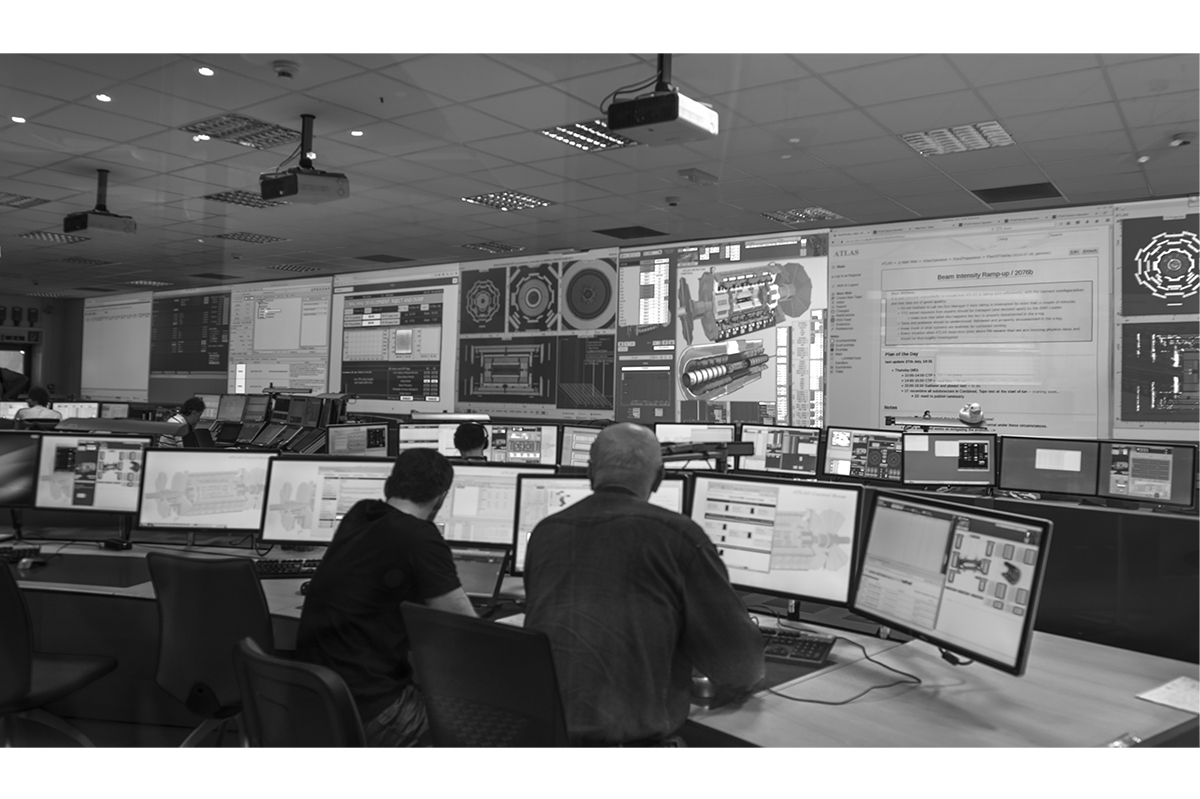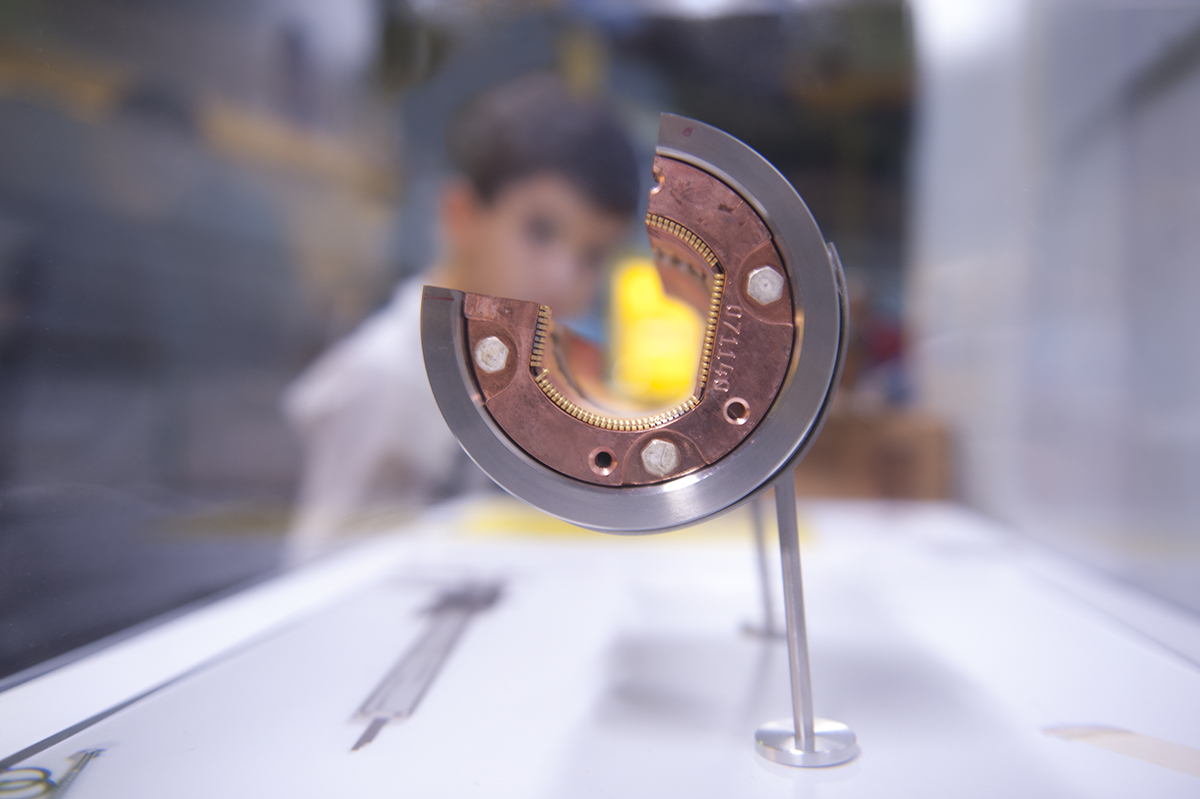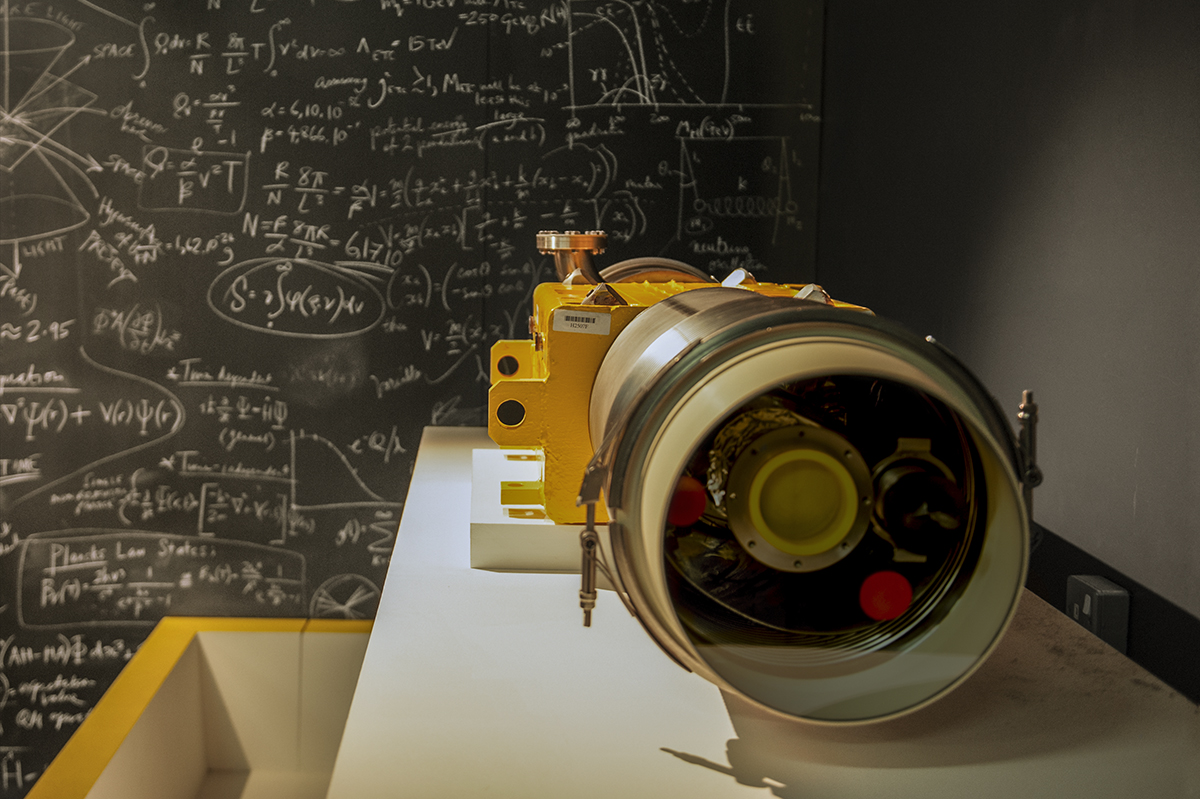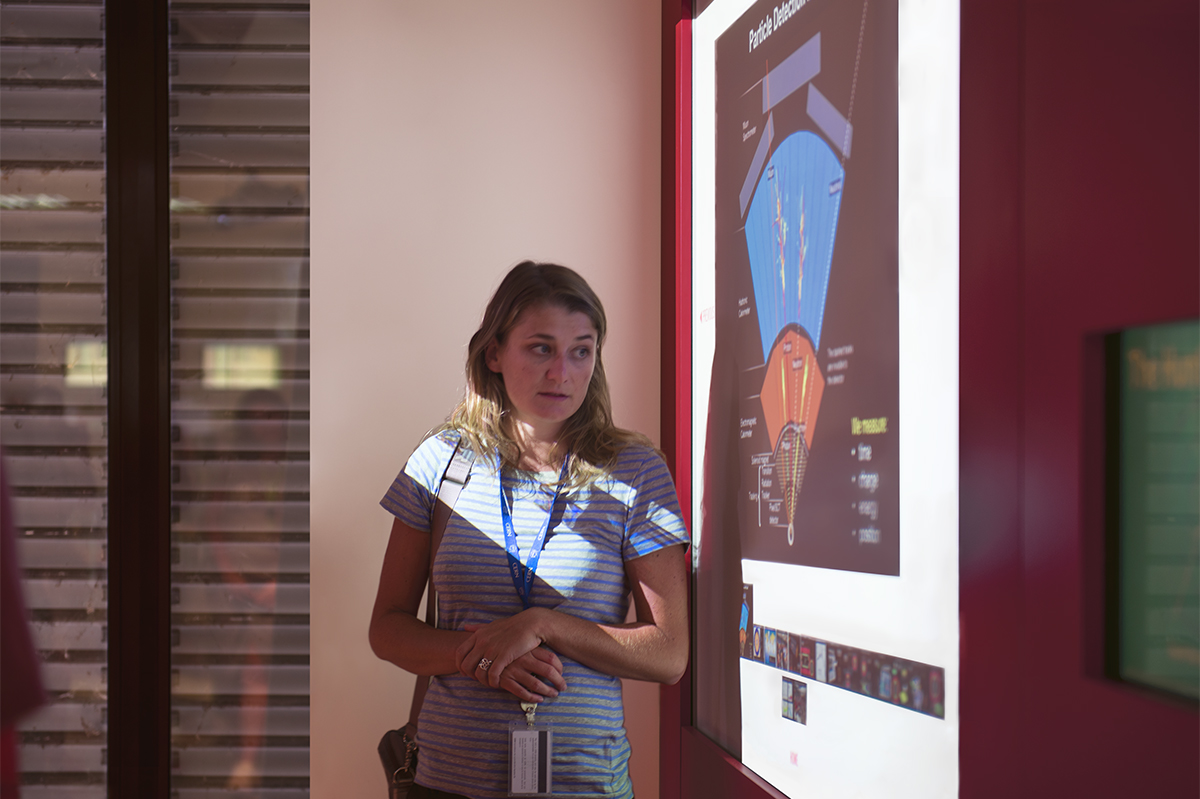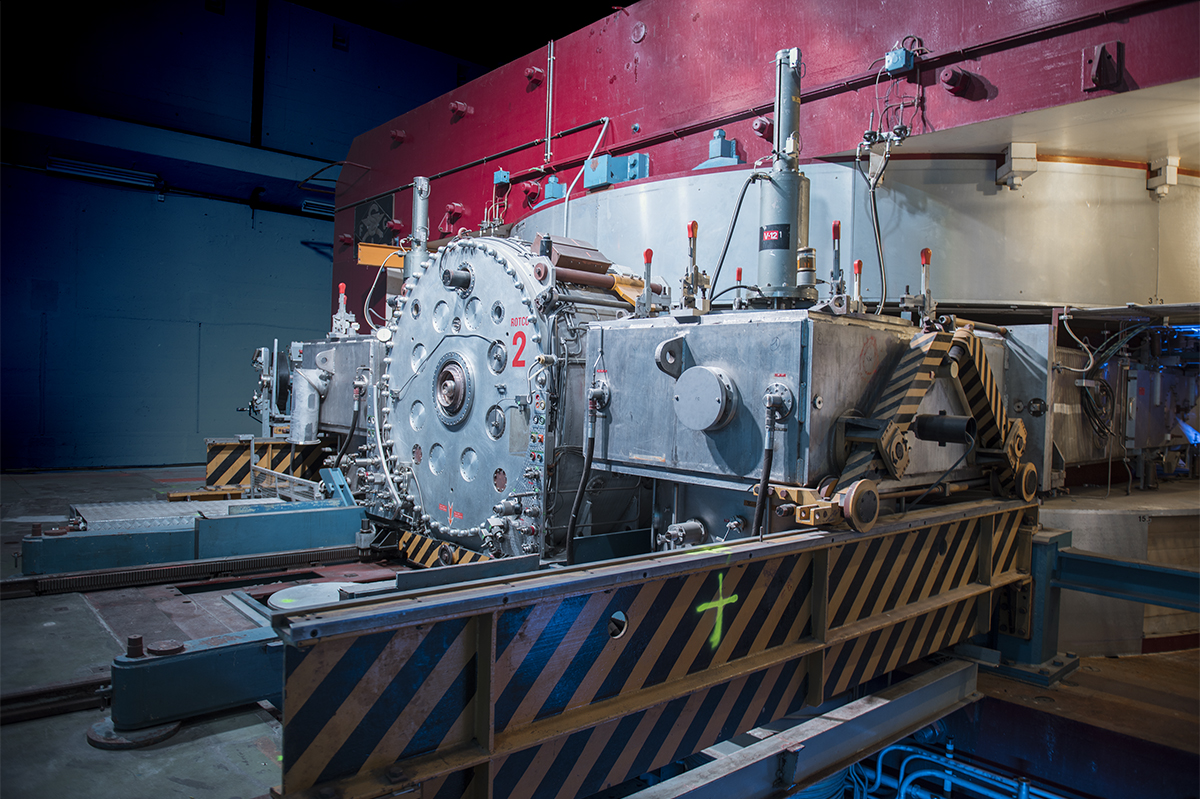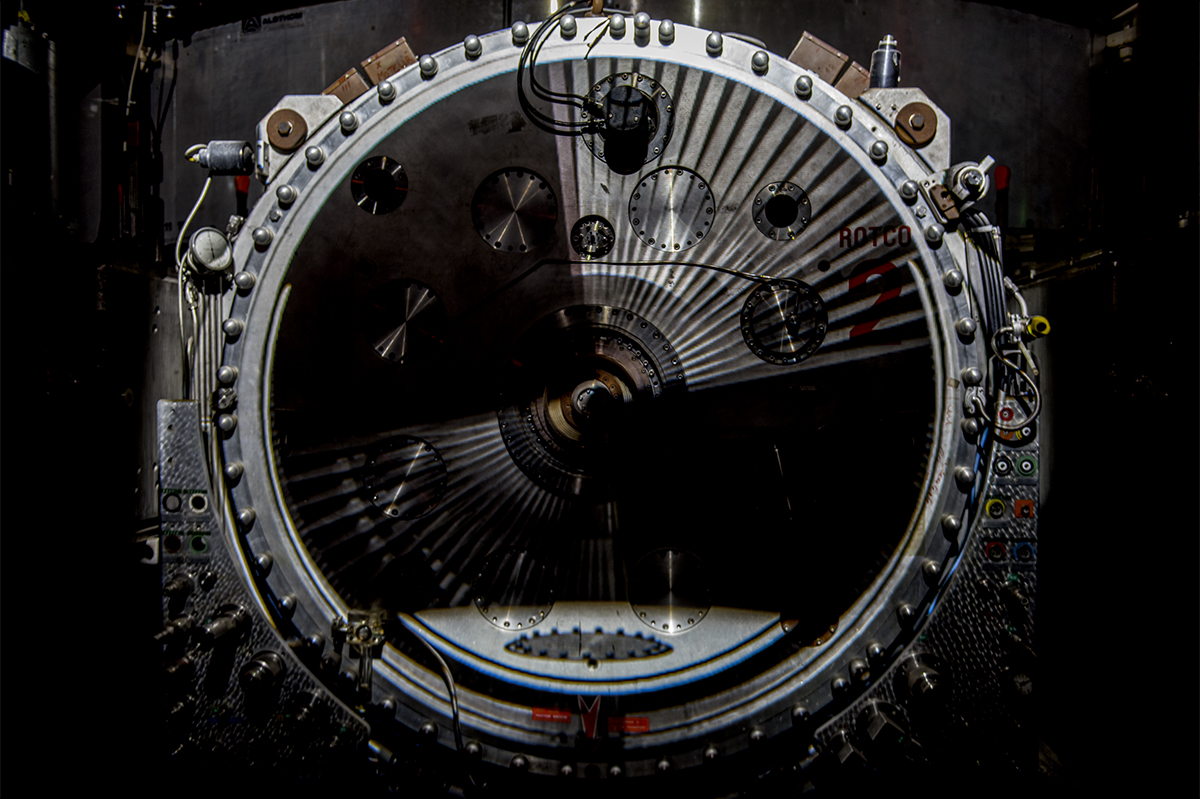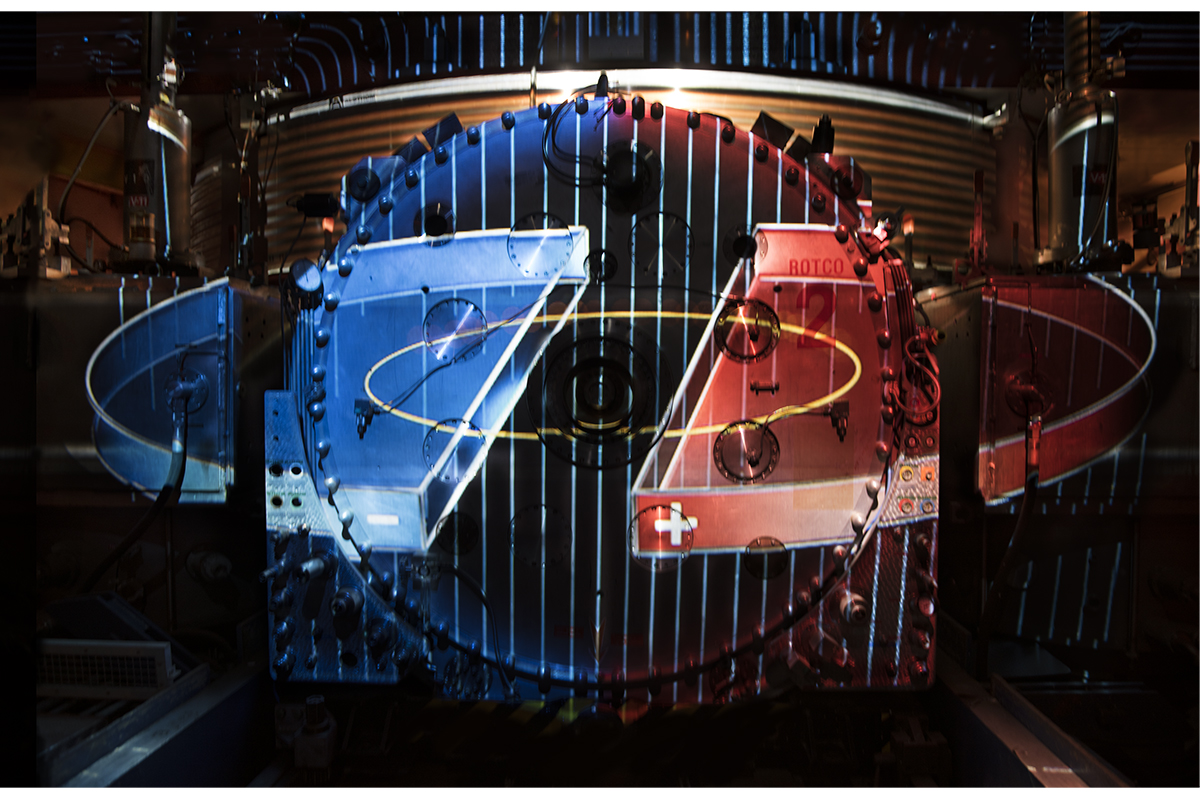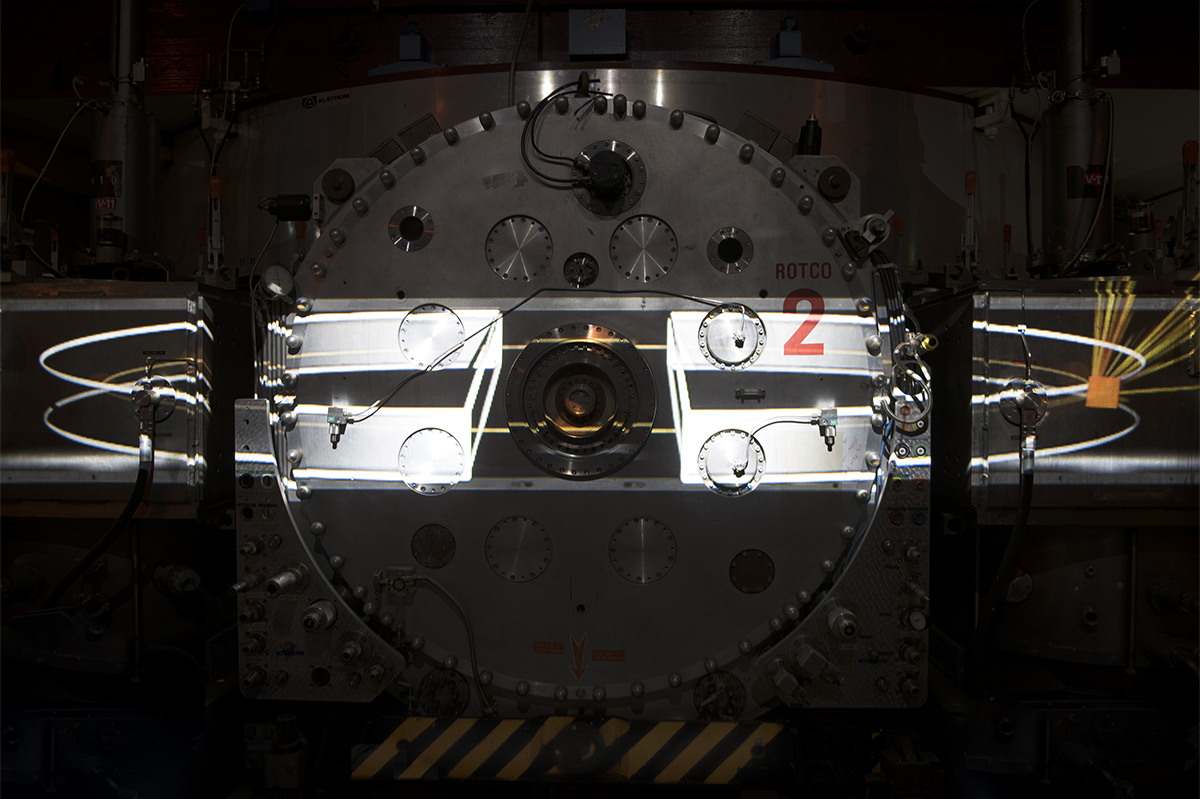Collider
<prev next>
Stemming from an ongoing research project aiming to develop a multifaceted portrayal of space, the series Collider addresses the understanding of the universe's very core elements and foundational processes at a subatomic level, while highlighting the potential of knowledge for the benefit of human and universal sustainability.
The project explores sites where understanding and knowledge are formed through cutting-edge fundamental scientific research: it embraces at once the space at CERN itself - its depths, laboratories, control units, ultra-sophisticated machinery, exhibits, international community of researchers - and several rooms at London's Science Museum - presenting display fragments of its recent blockbuster exhibition 'Collider'.
By examining human interactions within a space of refined knowledge, demonstrating how the labour of research still constitutes a model of sincere utopia - a world where integration and cooperation are possible, independently of one's nationality, ethnic or class background - Collider raises questions on how scientific thought and methodologies can help shape critical and lateral thinking, to help foster a more holistic understanding of the world we live in - known and unknown - at all levels. Ultimately, Collider puts forth an aspiration, a societal model that is certainly more aware of its place in the world, and therefore more sustainable.
The series Collider has been nominated for the 7th edition of Prix Pictet (theme: Space). The photographs 'Looking for the Bang' and 'Collider III' are included in the Royal Photographic Society Images for Science 2016 (exhibition toured the UK, 2016/17).
